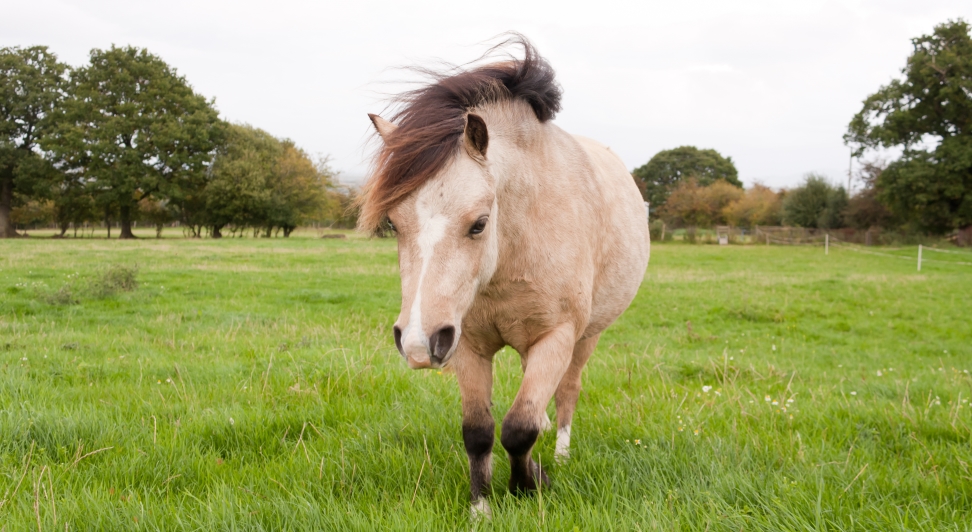A recent article in The Telegraph has highlighted the prevalence of overweight horses in the UK. The article reports that a staggering 50% of UK horses are overweight, while 70% of native ponies are obese, as found by the Royal Veterinary College.
Why is ensuring that your horse is a healthy weight so important?
Obesity can significantly compromise the health of the horse and negatively impact on their quality of life. Excess weight puts a strain on the vital organs, including the heart, as well as increasing the load on the skeleton and associated structures.
It is vital that owners can recognise when their horses are becoming overweight. Vets believe that a lack of understanding amongst owners is the main reason for the rising issue. Recent surveys have proven that owners are often defensive about the problem, and some even dismiss the fact that their horses are obese.

How to manage an overweight horse
Act now! Although it doesn’t feel like it right now, the spring is fast approaching and so it will not be long until the grass is flourishing again. This is naturally when horse’s start gaining weight. So, don’t panic if your horse is looking lean coming out of the winter. It is a good thing! However, if he has suddenly lost a lot of weight then it is important that you consult your vet as there could be an underlying issue. Any weight loss should be done gradually.
If your horse or pony is overweight or at risk of obesity, it is your responsibility to proactively help him to lose the weight, before it is too late! Here are my top tips for supporting your horse’s weight loss:
1. Forage
Horses need access to forage at all times to keep the digestive system functioning efficiently. However, if you’ve still got good grazing, now is the time to start restricting your horse’s grass intake. If you have poor grazing, it is recommended that you provide hay or haylage as a substitute. For those horses and ponies on a diet, it is helpful to soak hay to reduce the non-structural carbohydrates (natural sugars). Calories will begin to reduce after soaking for half an hour, but you can soak hay for up to 12 hours, then rinse and feed.
2. Cut the calories
Horse owners often feel the need to increase the volume of concentrate feeds they give their horses when the weather gets colder. Unless your horse is in hard work, this is likely to be unnecessary. It is a common misconception that horse’s require extra feed throughout the winter months - they have developed to cope with low temperatures, and their bodies can function on very few calories. Simply provide your horse with a high fibre diet alongside forage, such as a low-calorie chaff or sugarbeet, and the essential vitamins and minerals plus any additional supplements he requires. Prevent over feeding by weighing feeds, and be careful to make any changes to his diet gradually..
3. Exercise, exercise, exercise!
The weather is cold and gloomy, and it is easy to put off exercising your horse, but physical activity is hugely beneficial in a bid to help your horse lose weight. There are many ways to exercise your horse, whether ridden, in-hand or loose. However, be aware of your horse’s level of fitness and only increase exercise gradually as a sudden increase in activity can make the risk of injury greater.
4. Monitor weight loss
Keep track of your horse’s weight loss by using a weigh tape and body condition scoring regularly. It is difficult to notice a difference if you see your horse every day, but by closely monitoring his weight, you can be sure you are keeping on the right track. Ideally, the horse shouldn’t lose more than 0.5-1% of body weight per week. Follow a condition chart, such as the one provided by the University of Texas.
To ensure your horse is receiving the correct nutrients he requires in his diet on a daily basis, take a look at Feedmark's SlimAid. This comprehensive vitamin and mineral supplement contains all the essential nutrients in an easy-to-feed, condensed pellet form to balance a forage diet.

